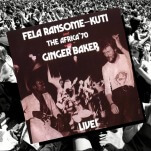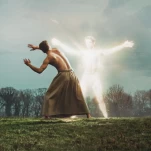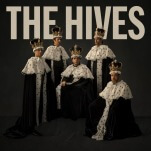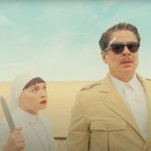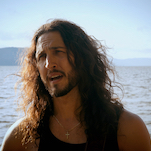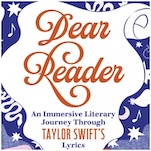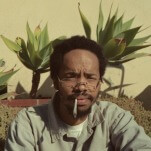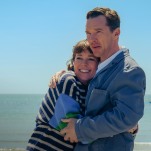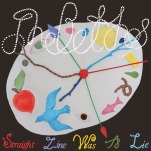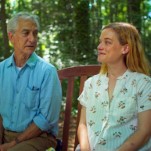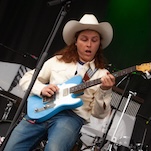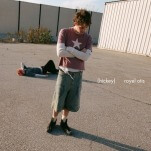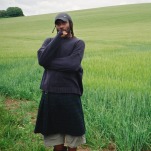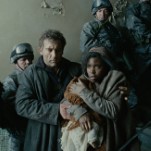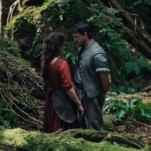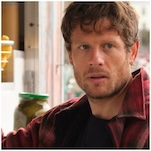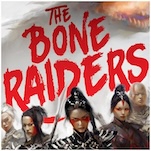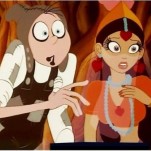On Relinquishing Control
Actor-turned-filmmaker Taika Waititi talks influences and improvisation in his latest, Hunt for the Wilderpeople
Photo by Michael Buckner / Staff / Getty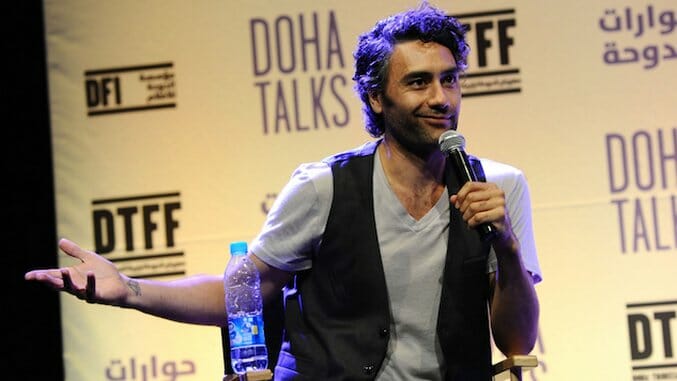
If you’re the type to watch a film to pick out its references and influences, Taika Waititi’s latest effort, Hunt for the Wilderpeople, is your jam. To start with, it’s based on a novel by Barry Crump, one of the best-known authors of Waititi’s homeland, New Zealand. It’s also a joint entry in a handful of well-worn genres, at once a manhunt movie, a coming-of-age movie and a road trip movie melded into a unified whole. What you get out of it hinges in part on what you bring into it. Do you see any shades of Federico Fellini’s La Strada, or notes from François Truffaut’s Antoine Doinel films? How about bits and pieces of Wes Anderson and Shirley Barrett, Roald Dahl and Maurice Sendak?
You could spend hours interpreting homage in Hunt for the Wilderpeople, or you could just call it what it is: A Taika Waititi movie. Waititi has been making movies since 2007, when his first feature, the comedy Eagle vs Shark, premiered at that year’s Sundance Film Festival. He’s made three others since then: 2010’s Boy, 2015’s What We Do in the Shadows and, of course, Hunt for the Wilderpeople, his most ambitious release to date (at least until Thor: Ragnarok hits theaters in 2017). Watching each of these lends the distinct sense of a filmmaker who unabashedly loves the medium of cinema, but as much as he draws inspiration from other movies, he applies that inspiration toward making his movies his way.
Despite obvious visual callbacks to the films of Terrence Malick and Peter Jackson, Hunt for the Wilderpeople is no different than usual for Waititi, though it outweighs his previous films in scope. It’s a big movie about intimate, human ideas, in which young Ricky Baker (Julian Dennison), an orphan caught in New Zealand’s foster system, very nearly settles in with his forever family—Bella (Rima Te Wiata) and Hec (Sam Neill)—only for Bella to die suddenly and leave him at the mercies of his social worker, Paula (Rachel House). But Ricky isn’t going back to foster care, so he runs off into the bush with Hec hot on his trail, inadvertently sparking a national search for both of them in doing so. At times the film will break your heart, at others leave you riddled with laughter. At all times its humanity will resonate, no matter if showcased through absurdism or tragedy.
Waititi spoke with Paste Magazine in late June about Hunt for the Wilderpeople in the context of his filmmaking career, how he approaches his influences, bucking convention with his scripts, and his new, increased focus on directing before acting.
Paste Magazine: I’m curious about the source material. Obviously, Barry Crump wrote the book that you based this off of, but how closely did Wilderpeople stick to Wild Pork and Watercress?
Taika Waititi: Only really the scene and the situation, the idea of the old man and the boy out on the run so that he doesn’t come back into foster care. It’s the background of the book that I kept. The rest of it, I added the social welfare workers, Paula and Andy, I added all of the comedy, and also the book takes place over about three or four years. So I changed all that as well, just to make it a bit more immediate and give it a bit more movement. And that’s it. Yeah, so, you know, definitely a lot of new material in there. And Rhys [Darby]’s character is new. He’s not in the book. There’s no big car chase or shootout at the end, or anything like that, in the book.
Paste: I actually am not surprised to hear that. This feels very much like what I would expect from one of your movies in terms of its emotions, its tone. I think that’s really interesting. A lot of filmmakers tend to wear their references on their sleeves. I don’t think you do that.
Waititi: Well, that’s good!
Paste: [laughs] Do you find it freeing not to be burdened by your influences?
Waititi: Yeah, I mean, I know my influences. I’m really open about what they are, and usually—I’ll just throw them out here—the films I constantly go back to are Paper Moon and Badlands. I think I go to Badlands a little more than not. But yeah, but those two films, definitely a lot of ’80s chase films. Thelma and Louise a little bit. My films in general, I love a mixture of a lot of films. I love successfully marrying drama and comedy together. I really love that. That’s, like, a tone that I’ve fallen in love with. I think The Graduate is an example of comedy which has darker, deeper things, you know? It touches you at the core as well as makes you laugh.
I’ve seen that film 50 times, and I laugh every time. So there are certain films and certain filmmakers, Hal Ashby films would be another good example, people that you always come back to. And that tone. That’s the kind of thing that I guess I’ve come to love. But I don’t find it a burden at all. I just unabashedly pick a style that I like. I try not to copy someone’s particular style, but I kind of think at this stage of the game that, you know, I’m very happy just to pick and choose and take shots, just steal shots from a film that I love and put it in. I think it’s a free-for-all now.
Paste: I would agree with that for sure. And I totally understand what it is that you’re saying about the tone. I know a Taika film when I watch a Taika film, but they don’t feel the same. It feels like you’re making an intentional effort not to repeat yourself by making the same movie.
Waititi: Yeah. And I’ll say, on the surface, it would probably be accurate that I do repeat a lot of themes, a lot of family, and kids who are troublemakers to the world, and relationships within families. But yeah, I try to keep myself interested in a way every time I do it. I try to mix it up and do it differently.
-

-

-

-

-

-

-

-

-

-

-

-

-

-

-

-

-

-

-

-

-

-

-

-

-

-

-

-

-

-

-

-

-

-

-

-

-

-

-

-

